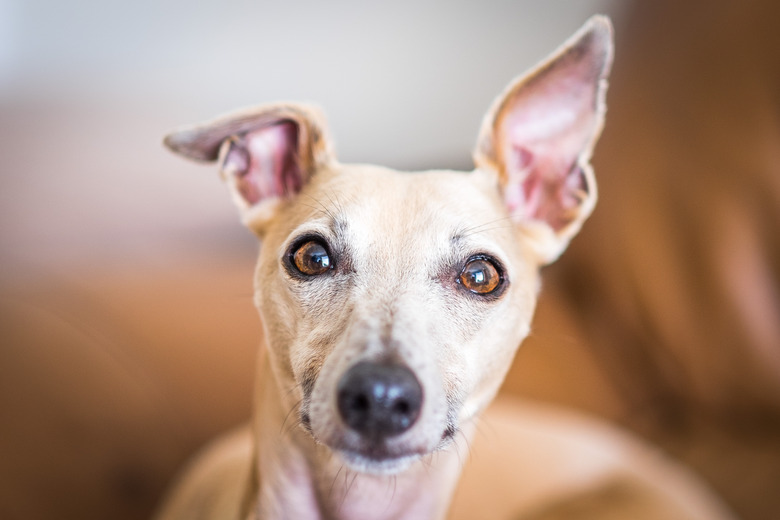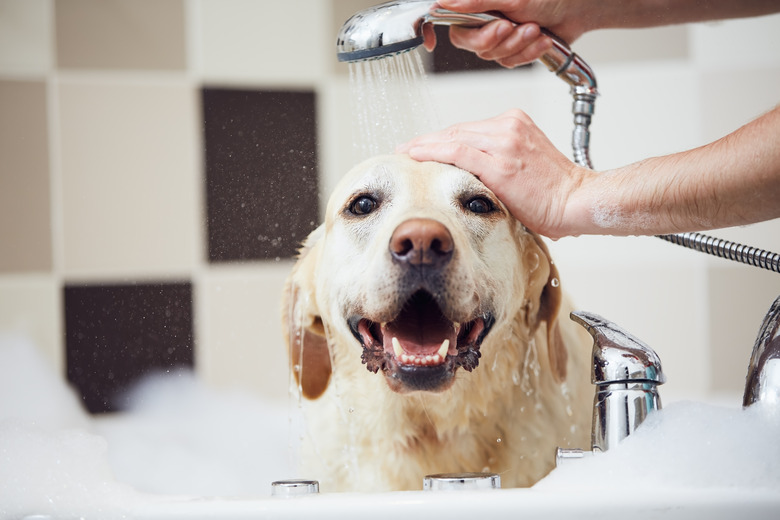How To Heal Dry Dog Ears
It's important to check your dog's ears regularly to be sure they're clean and healthy. When dry skin, hair loss, redness, or swelling develops or your pet starts acting as though their ears are bothering them, it's necessary to get to the root of the problem so your dog can get relief. Learn some of the reasons your dog's ears might be dry, itchy, or irritated, along with a few solutions to help your canine companion feel better.
Why are my dog's ears so dry?
Why are my dog's ears so dry?
There are several causes of flaky, dry skin on a dog's ears, including:
- Allergies: Reactions could be triggered by a number of things, such as food allergies and environmental allergens, and the skin on your dog's ears might be affected. Work with your veterinarian to uncover the cause of your pet's symptoms so you can provide the right treatment.
- Mites: In addition to ear mites, Demodex and Sarcoptes are other examples of mites that can affect dogs. Symptoms include itchiness; hair loss; and irritated, flaky skin. Your dog should be examined by a veterinarian to receive treatment to get rid of mites.
- Fungal infections: An example is ringworm, which causes inflamed skin; patches of hair loss; and scabs on the ears, face, and body. Have your dog evaluated by a veterinarian for proper diagnosis and treatment of ringworm, as it can spread to other pets and people.
- Bacterial, yeast, or ear infections: If your dog's skin or ear is infected, excessive scratching and changes to the skin may occur. The right medication from your veterinarian can fight the cause of an infection so your pet can heal.
Diagnosing problems with your dog's ears
Diagnosing problems with your dog's ears
Don't try to diagnose and treat dry dog ears yourself. Doing so might do more harm than good and delay your pet's healing, especially if there is an infection that could worsen.
Take your canine to the veterinarian for an accurate diagnosis and treatment plan. They will examine the inner ear and outer ear and may ask about your dog's diet and medical history. They might also perform fungal culture, skin scraping to check for mites, or an ear swab.
How to treat dry dog ears
How to treat dry dog ears
Depending on the underlying cause(s) of your dog's dry ear symptoms, your veterinarian might prescribe:
- Oral medications
- Ear medications
- Flea treatments
- Mite treatments
- Antifungal treatments
- Diet changes
- Bathing
- Ear cleaning solutions or ear drops
- Anti-itch creams or moisturizers
Your veterinarian might also recommend treating your dog's dry ears at home by doing the following. These steps might even help reduce the odds of dry skin returning. Just remember that the remedies will ultimately depend on the health conditions or skin conditions that are causing the problem.
Bathe your dog regularly
If your dog has dry ears, giving them a bath with a soothing or oatmeal-based pet shampoo may be helpful. But bear in mind that bathing them too often could actually make the skin and coat drier, so talk to your veterinarian about an appropriate bathing schedule for your dog.
Your veterinarian might also teach you how to clean the inside of the ears with an ear wash approved for dogs, or you might need to carefully apply a topical product after cleaning the skin. Avoid using a q-tip to clean your dog's ears as a q-tip can injure your dog's ear drum or push wax farther down. A cotton ball or wipe is ok.
Avoid getting water inside the ear canal when bathing your dog. Your veterinarian can give you tips on how to prevent this from happening.
Switch to a diet for dogs with food allergies
If your veterinarian suspects that food allergies are affecting the ears and causing itchiness or inflammation, a diet trial may be needed. This typically lasts at least eight weeks and involves switching to a novel protein, such as rabbit or fish, that your dog hasn't eaten before. After the trial, your pet will be assessed to see if there's any improvement.
Add omega-3s to your dog's diet
Adding omega-3s to your dog's food might be recommended because these good fats could support and improve the health of the skin and coat. Your veterinarian can provide guidance on fatty acid supplements and dosage.
The bottom line
The bottom line
If your dog is experiencing any ear issues, such as dry skin on the ear flap, ear scratching, or head shaking, consult your DVM to determine the cause. There might be a problem inside your dog's ear canal or on the exterior of the ear. The solution might be simple, such as a cleanser or ointment for the skin, or your dog might need medication to treat mites, bacteria, or a fungal infection.


